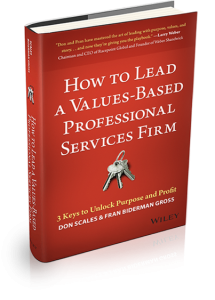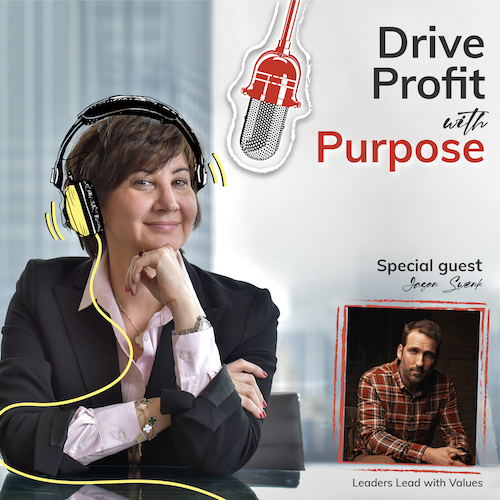
In this episode…
One of the biggest misconceptions of Purpose is that it is the same thing as passion. Passion is a part of the Purpose equation but it’s only half, and passion alone will not drive profit. The other half of the Purpose equation is the impact your passion has on others, on markets. What is it that your market needs that you can passionately provide? Jason Swenk has been called the number one agency influencer in the world. He knows what it takes to get agencies and other businesses focused on market needs so that they can thrive.
Episode Transcript
Fran:
When we talk about purpose, and truthfully, that’s why we’re here, there are two aspects. There’s two sides of the equation: the contribution and the impact. There’s the contribution– the thing that you’re committed to doing every day, the thing that you love, the thing that you’re amazing at. And then there’s the other side– the impact. What does that do for your clients? What does it do for your clients, your market, your community, and I would even say, the world. Contribution without impact? We define that as an interest, not a wWhy, it’s an interest, a passion. It’s not a purpose. It’s not complete unless you have both sides of the equation. And it’s certainly not going to drive profit for your business.
In this third season of the Drive Profit with Purpose podcast, we are focusing on what we call purpose champions, true, intentional leaders who tap into their purpose to create significant impact. Today’s guest, Jason Swenk is a perfect example of a purpose champion, and someone who has a laser focus on the impact half of the purpose equation. Jason Swenk is one busy guy, he runs his own digital agency coaches growing agencies to breakthrough success host to podcasts, including one masterclass and serves as an advisor, and serves as an adviser to as an agency expert to Republix, connecting businesses to marketing agencies with predictable results. How great is that? Jason has a broad and deep agency experience, a passion to share with others and a knack for systematizing and organizing, and organizing what is often the chaotic life of the agency world. It’s no wonder why he’s been called the number one agency influencer in the world. Jason, welcome to the show.
Jason:
Oh, thanks for having me on, Fran, and I just need you to read that intro to my kids when they come in every time I think they think I’m the dumbest person.
Fran:
Hey, listen, that’s a whole other episode of a podcast. But I would be happy to cut that out for you to share.
Jason:
Yeah, they would just think it was fake.
Fran:
No, I totally understand. I want to get back to how we can bring really amazing nuggets today for those who are really looking to drive profit with purpose. You know, very early on in your career, you landed on what some would consider a plum job. And with a giant in the industry, Arthur Andersen, and you really didn’t stay there very long. Could you tell me a little bit about why not?
Jason:
Well, it was a little bit by choice and a little bit about getting rid of. You know, I’ve been fired from every single job I’ve ever had other than being a tennis pro, just because I think my parents paid for lessons. I don’t think they could. I think they were actually making more money than I was working. So that’s probably why. But yeah, I worked with Arthur Andersen in 99, when you know the dot boom, was was going on even had a signing bonus, and really lasted just six months. You know, they never put me on a project. And I was, you know, kind of fighting my side gig at the time of designing websites, I designed my first website making fun of one of my friends that look like Justin Timberlake. And kind of making fun of insync a little bit and, and then people really love that website for some odd reason. And then they started asking me design websites for them. And so when I was politely asked to leave, I was like, cool, I’m good. Like, I got my next gig. And let’s see, let’s see where this takes me.
Fran:
It’s so fun to pull a trajectory and what we think we’re going to love doing and then it starts to reveal itself. You know, where are you? You know, you, you did something because you’re passionate about it, and you thought it would be fun. And then it turned into something that, we’ll get into that. So, you know, you’re really an incredibly busy guy running your own business coaching numerous companies and leaders running podcasts and masterminds. How do you get it all done?
Jason:
It’s just focus and just remembering kind of my North Star of, you know, why, why I exist and why, why I do what I do. And, you know, just priority. You know, if I could say that word, I probably work Look at me, I’m using big words. But uh, you know, it’s it’s really just knowing what to say yes to what to say no to knowing what, you know, my superpower is, and working on the strengths and hiring people to you know, fix the weaknesses, to do the weaknesses not fixed the weaknesses. Sorry.
Fran:
I love compensation, right? I’m going to hire someone who complements my strengths, kind of the nice way that I like to sort of think about it. But you’ve gotten a really laser focused about really understanding what your what you’re good at what you believe in, and really protecting that time. I think that’s a really important tip for everybody who’s listening. Because, you know, I think prioritization is a tough thing, right? We spend so much time doing things that that aren’t useful. I look forward to learning from the master. Let me ask you a question. How do you choose your collaborators?
Jason:
Ah, it’s just like, I would choose a team members, right? They have to have similar core values that that I believe in, right? Like, I’m not looking for my twin, because I think that would be pretty frustrating. But I’m looking for people that have a similar belief system that that I do, right? Like, we want to celebrate wins, we want to, you know, share our failures, we want to have fun, we want to have that freedom in our life where, you know, we can pick and choose to do the things that we love, you know, so like, I just, I try to surround myself with people like that, and get rid of the the naysayers or the negative people. It’s just life’s too short for that.
Fran:
Yeah, I think as we mature, and we find ourselves investing in things that aren’t necessarily fruitful, I think we tend to accumulate some knowledge. And then we get, we get better at, you know, cutting, cutting those things out or shortening our investment. Because we see that it’s not either in alignment, or it’s going to be useful in that way. That’s a really, that’s a really big insight for you to come together and be able to really talk about, right, because not, I mean, how many people want to really collaborate with you based on all of the systematize success, but yet, you know, is everyone a good fit in some way? Like, how do you really know? Like, can you really pick the stars?
Jason:
it’s not an exact science, sometimes I do mess it up. And some people do squeak in. But, you know, you get better over time. It’s just, it’s kind of think about as people started with their first proposal for getting business, right. And their first agreement with their clients, it was probably this small, and then over time as you get burned, or you’re like, oh, man, I should like it keeps building building building. So you’re constantly going, adding to the questions or the the, what are the what are the indicators? What are the leading indicators that this is going to turn out bad?
Fran:
That’s really important to know. But it’s, it’s really funny, somebody actually once gave me a contract that was like, 16 pages long, and I just sent them back. I’m like, I’m not I’m not going to read this. There’s like, like, you need to it’s the sum total of my life experiences. I replied, and I said, you have to, you know, the intention of the relationship has to supersede, you know, the protection, like, Do you trust me? Like, is this a relationship? I’m not saying we don’t need agreements? I don’t want to, I don’t want to even you know, ruffle that feather with all the negative comments, but we definitely do. But the question is, are you picking the right partner to do something with it, you even want to enter an agreement, right? You want to plan the divorce, when everything is good, just so that it’s easy to break up? That’s the intention of an agreement right to and also to kind of say, hey, you can’t have the entire kitchen sink, but we’re gonna do a three course meal, not a seven. So we want to manage impatience and expectations. Can you tell me like a couple of stories? That might be you’ve got to have some really good stories about this.
Jason:
One story we get a lot of times, this is when Facebook and Google were really taking off. Or maybe they’ve been around for three or four years. But we would get people coming and saying, I want you, I have this really unique idea that I want you to create. It’s like Google and Facebook. And and this one site put together but different. And I don’t, I don’t have any money to pay you. But I want you to take ownership into something. And, oh, I need you to sign this NDA, before I even tell you what it is. And I’m like, holy cow, like, I’m just running the other way.
Fran:
Red Flag red flag, right? Yeah,
Jason:
I’m like, I surrender. I send you to my worst competition.
Jason:
What I always like to do is, rather than start off with a long agreement, it’s all about building trust, you know, on both ways of going, let’s, let’s have a conversation, let’s see if there’s a fit kind of almost like, like a triage call, right? Like, and then you take that triage call, and then if there’s opportunity, and they’re the right people for you, and vice versa. Because I find a lot of times people will sell people what they want, rather than what the prospect actually needs. And then do like a mini test project with them. And if it goes well, on both sides, then you continue. And that’s the best way I’ve always found of building relationships. Because when you go for the jugular, and you ask the person to marry you right off the bat, it’s, it’s a hard, it’s a big decision. Because there’s there’s, there’s risk, versus you know, let’s let’s see how you can make it a little bit easier, build some trust, show them some value. And then you’re, you’re off to the races.
Fran:
So you talk about building trust. And I would actually say that you’re earning trust, right with the very first engagement and the hot like, I can’t imagine that that doesn’t do incredible things for your overall profitability, right? Because you don’t have to, you don’t have to get into something big. You don’t have to unwind something big. You don’t have to start with really big deposits. You don’t have to get into, you know, big arguments and disagreements and arbitration or lawyers or whatever. But you start small earn that trust and then and then go go big. And it drives, I would imagine that it it has had certain success for driving overall profitability. Yeah, a story or two about that.
Jason:
Yeah, I was I was working with a search engine optimization agency, and they, their average retainer was 5000 a month. And they would sell month, a month. And I was like, why do you sell month a month? They’re like, well, it’s easy. It’s an easier decision. My Okay, I get it. Well, how long do you hold on your clients for about six months? I’m like, why are you losing them in six months? So I said, Okay, let’s switch it up a little bit. Walk me through your proposal process. And they were like, Oh, we do this long proposal where we do this deep dive, give them tons of strategy, like just trying to win them over with how smart we are. I said, Okay, let’s change it up a little bit. Let’s actually charge for the proposal. But in the proposal, since you’re and you can charge for the proposal, because you’re giving strategy, why are you giving strategy away for free and charging for execution? And they were reluctant. And I said, Just do it. And I said charge 2500. He’s like, really, that’s Wow, that’s, that’s like half of the month, I said, you know, people, the more you charge the better result, because the more they’ll actually pay attention. And they’re like, if you only charge 100 bucks, they’d be like, okay, but like, Am I really going to get the value, they’re not going to pay attention as much as they would. So I said, do the 20 $500. And then, in the 2500, we’re going to point out some gaps, right? So we look at where do they want to go? Where are they now? And then what’s the gap that we need to build the bridge, the solution will get you to the next point. And then what you’ll do is you’ll position a project because we’ll point out a couple gaping holes that they have. And then the project I asked them, I said, how long would it take for you to show your clients back in the day? when they’ll actually start seeing results. He’s like, Well, probably in two months, like Okay, let’s do a three month project with them. We’ll charge your regular $5,000 a month. So do a 15 $1,000 project. And then when they start having success that the two month or two and a half month, month mark, we’re actually going to say, hey, Fran, man, you’re crushing it on on this on these results. Do You Do you agree? Yeah. Oh, man, this has been fantastic. Awesome. Well, there’s a couple other things that we can add to it to really put some gasoline on the fire. Would you be interested in hearing that? Oh, yeah, of course, great. And then they were able to position the retainer at 8750 for a year agreement. So now every agreement that they bring on is worth over 100,000. versus their typical 30,000 of losing them in six months.
Fran:
You have it right there, you’re driving profit with purpose aligned people, like it’s just the Tootsie Roll of goodness, right there. That’s, it’s a very important story, if we could only if we could only learn it early on, right. So that’s, you know, gosh, I’ve been doing this for so long. And I just want everybody around us to take these nuggets and do things considerably early, it’s important, they learn it now, then you execute. So you’re not 10 years down the road. 100% Hey, listen, but it’s never too late. It’s never too late to fix these things. So whatever point in the journey you’re on, you know, there’s always something that we can, that we can improve. You’ve said that your mission is to provide a resource you wish you had, while running your first agency. Tell us why that’s important.
Jason:
Well, I just remember how challenging it was just how isolated and alone I actually felt, you know, I couldn’t go to my team and be like, I don’t know what I’m doing. Like, what do you think I should do? Like, the whole team would leave. And I just felt like, I was always guessing, you know. I just remember, I was like, Man, I wish there was someone or something that I could actually go, you know, tap on, that would be a good sounding board that would be able to kind of see the things I won’t be able to see, you know, like, picture yourself in a rowing boat, and you’re just rolling along kind of, you know, little little bit of choppy water, well, you can’t really tell that there’s water coming in, or you’re going down a little bit. So someone from outside from the shore can actually go, oh, man, if there’s that, they just keep watching that boat. They’re like, Oh, man, the side of the boats getting closer to the edge of the water, like they’re gonna go under. And so then you can kind of go, Well, hey, come here, here’s a couple leaks. And that kind of that kind of sped up success a lot faster. You know, I think everybody has the resources and they’re resourceful enough, but sometimes they things between their ears, just block them out.
Fran:
So how has that really contributed to I’m gonna say, Your, your personal fulfillment and your team’s fulfillment? It just, it would be so helpful to share how you actually how you involve core values as intertwined, you know, woven like a beautiful fabric inside your vision and mission and purpose.
Jason:
Yeah, well, you know, the story that I’ll tell you is when when I sold agency, for the first week, I was really, really excited. And then, you know, I mean, I ran a pretty sizable team worked with the biggest brands in the world. And all of that was pretty much gone. Like I was literally delegated to like a meeting coordinator, most depressing job ever. And so I didn’t have any of that significance. But at the time, I didn’t know what that was. So I was pretty depressed for a while. And I couldn’t go start another agency for a while because the non compete. And so I was like, I don’t know what I’m gonna do, I’ll go create an iPhone app. And I created an iPhone app that takes pictures of everything you eat, and gives you a visualization of your moods. And the thing was, is I hated it. And I would not take pictures of my food. So I was like, I felt like a hypocrite. So I was kind of lost and I had I really associated myself to being an agency owner and that was it. Not a husband and father or anything else. And then I attended. Don’t make fun of me. I attended a Tony Robbins event. And
Fran:
First of all, wait timeout. I totally want to make fun of you. But at the same time, I don’t want to make fun of you. I appreciate that you were so vulnerable to even say, Hey, I needed help. So as much as I want to, I want
Jason:
Okay, so I attended the firewalk thing. And so at first I was like, all this stuff’s fake. And then a couple years ago, people got burned. I’m like, Oh my god, I really did it. But the, the point of the story was is he went over like basic human needs. And then, and I think there’s seven of them, I can’t remember. But he was like, the one that you associate the most will actually drive everything. And so mine was significance, I really needed to be, you know, significant. And I had that significance. It Like, he always uses the scenario of like, Why do people pull guns on people, so they can feel significant? feel important, right? And so why did I run a company like that? So I could feel important, so I could find significance in it. And so, you know, I figured that out. And then I was just lucky enough that some old competitors were like, hey, how’d you do x? How’d you do? Why? And I was really good at it. And I, and I got that significance back. And then I wanted to be a part of a community. Right? That was another big, big trait, I wanted to constantly grow and contribution.
Fran:
I think when you first of all, when you are completely attune to the things that you need, right? And Far be it from me from Yeah, I don’t know, I kind of like those things. So maybe one day I’ll do the firewalk. But listen, wherever, wherever you get your inspiration or your ability to unblock, but the, the idea that I see, or the things that I heard you say was that when I was able to understand why what was important, what fulfilled me, I was able to activate it and give to others. And that brought me joy, and took me out of the depression piece. So I, you know, when you look at the ability that these three keys have, you know, your purpose, the values you share, and you can tell it through story, they’re completely repeatable from your teams, to your vendors, to your clients. So they understand and they align with those belief systems, and, you know, you know who your best clients are, you know, who your best vendors are, and you certainly know who your best employees are. And the more you are able to put them together that, you know, it’s just a perfect demonstration of how you were able to do that, even after you sold the agency, you know, find your footing a little bit, but you did. You found your community, you lead it, you know, you deliver it through the podcast through the mastermind groups through like, so many different levels. So you must be one fulfilled kind of guy, which is really fun.
Jason:
Yeah, I mean, I’m living the life that I always dreamed about. Which I wish for everybody, you know, there’s not there’s not much I would change other than the pandemic.
Fran:
Well, I’m gonna dig into that for a second. I live in Queens, and I’m like literally reliving ground zero in a very different way. And I, they’re just, they were just two horrific events in my lifetime, and I hope never to repeat anything like that. But yet, what I’m finding with so many of our clients, and so many of our community members, just, I’m finding that I’m labeling it the forced pause, where we’re able to recalibrate and step back. Especially being in New York, right? We’re in like this rat race, hamster wheel, turn, turn, work, work, turn, turn, work, work. And we really had no choice but to force ourselves to pause and to think about, okay, we have to find another way, is there a better way? How can we achieve the things, despite the obstacles? And I think there is, there is a breath of, Oh, my gosh, I have a dream I want, I actually want to achieve and there’s, there’s family time, and there’s some hobbies, and there are some Yeah, we missed the travel, you know, it’s going to come back. But this time was a very sacred time if we embrace it that way. And I really hope that many whatever floats their boat, whether they cooked or they organize something, or they thought of a brand new dream of, you know, a new company or a new division, I hope that they really took the chance and the time to act on it because it was, it was a really beautiful blessing. And at the same time, oh my gosh, there’s so much hardship that we’re going to need to recover from that’s going to take a really long time, the restaurant industry, probably probably one of the most decimated industries they’re going to need our help for sure. Anything, anything else that we could talk about in terms of the pandemic, and what you see people coming out of it?
Jason:
Well, I’ve seen tremendous growth on the business side. But the thing that, you know, worries me a little bit, you know, like it, the pandemic, for me personally, in the very beginning was actually it made us be able to go out to our Colorado house early when the kids went virtual. But the bad thing that I’ve seen is just on the psyche of, you know, my kids with like, worrying about this, you know, my wife’s a social butterfly, not me, that’s why we live in, I live in the mountains. So I see the effect on them, which obviously, all affects me. On a business side, it’s been fantastic. And I share that when a lot of agencies when this first happened about a year ago, a lot of businesses were telling my clients, hey, we’re going to pause marketing. And so I found a quote from Henry Ford and said, pausing your marketing is like stopping your watch to save time. And I shared it with them. And I added something I was like, that makes as much sense as brown toilet paper.
Fran:
I can’t even First of all, I use that quote, quite often, if you’re doing marketing, right? It should be the equivalent of oxygen in your business, there should be a direct connection to ROI. And if you’re not seeing it, measuring it, then you should talk to some other people. But like, Jason, but there’s no doubt I completely agree with you. I mean, I guess marketers kind of agree, but, but we really, it’s not about even the ability to agree, we have to prove it, right? We hold ourselves to a higher standard. If we can’t prove that we’re generating revenue opportunities leads authority, then you shouldn’t be doing it, then you’re actually probably not ready for it. I wanted to talk about, you’re living your life, you really the dream, right, the picture that you really hope that you could achieve your your kids are quite young are still in grade school. So you’ve achieved this rather quickly. Can you help? I don’t know what with a story or two about how you seed you see it education and entertain agencies, and give them the ability to actually to get over seven, even eight figures. And I understand a little bit based on the things we’ve shared today, why you have the need to educate agencies, but what role does entertaining play in your mission? Because I think there’s there’s got to be some fun stories here. Because it’s, it’s rooted, right? Right at your core?
Jason:
I love to have fun. And I don’t just want to watch something just to learn something I’d like, I find that the the easiest way to educate someone is to first get their attention. And one of the best ways to get their attention is if you can entertain them with something that they’ve already gone through. Like there’s, there’s a YouTube video. I can’t remember they didn’t I had him on the podcast. They did a video about what was it? No more pitching or something like that. And like they showed, they showed themselves going, and they were from New York, and they would show that going to like the butcher shop. And they would go to the butcher and be like, I want to try your meat out for free. And then if I like it, I’ll pay it. Or they would go to the gym, the gym trainer and going, I want you to teach me everything you know. And then if I like it, I’ll pay you. And it was really just pretty funny. And so, you know, I saw that many, many years ago. And I was like, Oh, that was pretty clever. How can I create ones like that? And so we created this one video. Talking about RFPs, you know, request for proposal. And I was like, what are all the different meanings we can find the ones that we can come up with for what RFP stand for. We’re like request for punishment. Real effing problem. And like, we just kept coming up with all these ones, where people are like, Oh, man, like, I hate RSP. So we were taking something that people just couldn’t stand, but no one’s ever said anything about it. It’s kind of like that guy. I think he’s in New York, the sign guy, right? Like, he says, the things that we all are thinking and wish we said before he does the sign.
Fran:
So, it’s funny, I never get accused of that I always get accused of being unapologetically vocal, and I hide behind the fact that I’m from New York, I’m allowed to do that. So there’s no doubt you have definitely put the the fun, I’m going to look for that video. Because, gosh, RFPs are definitely painful. So I will definitely give my team a laugh, as sometimes we go through them, but I really appreciate the humor. And I there is really something to be said, you know, just in your, your demeanor, and you you make everybody comfortable. And there’s no question we will learn more, when we are relaxed, and we’re enjoying ourselves. But I’m glad that you have, you know, vocally made it important to say, hey, like, I’m not this stressed out kind of guide, if you’re going to be like that I’m just not going to work. So I love how you attract and repel through entertainment. Okay, last question. What is one quality that a purpose champion absolutely has to have?
Jason:
Think determination, right? Because once you find your purpose, or your Northstar, there’s going to be so many things that are going to get in your way so many roadblocks. And you have to figure out how to be resourceful how to get around them, you know, if your purpose is to climb your own mountain, you know, the path is not always straight up, you have to sometimes go up sometimes go down, backtrack, go back up, you know, and then once you get to the top, you know, the determinations, then I keep going what’s next mountain that I actually need to climb?
Fran:
That’s awesome. I love that. That’s determination right there. You’ve got it in a, in a fierce kind of way, you know, just creating a community for agency owners to really get above whatever that whatever they whatever it is that they’re aiming for. There’s a process of scalability, a community of support systems and processes for them to start as a baseline so that they can absolutely make mistakes quicker, and actually follow processes so that they can jumpstart things also even faster.
Jason:
You know, there’s, I was watching a video not too long ago as Matthew McConaughey. And I never knew how insightful he was. I always thought he was like the All right, all right, all right guy, right, like, David confused. And he remember him telling the story of going when he was younger, he was a young man, who do you look up to? He’s like myself. And he goes, What do you mean, he’s like myself in 10 years, he’s always chasing himself. And I think all of us need to really kind of think about where where do you want to be in the years to come and then chase yourself versus looking at the competitors, looking at other people and try to modeling what other people are because then you’re going to be the worst person at modeling someone else, you know, but you can be the best model for modeling your future self, wherever that’s at.
Fran:
You know, that’s, that’s a great compliment to the story that I say all the time, that I’m so competitive. And the truth ismy number one competitor is myself that I’m constantly raising the bar. But I like the competing against the idea of the future self. Actually, even better, because there’s, there’s direction. There’s clarity. That’s definitely great value right there for me something really to think about as we dive in. Well, Jason, I want to say thank you so much for your time today. It was really such a pleasure to really get all of this impactful wisdom of how we can continue to drive profit with purpose.
Jason:
Well, so thanks for having me on Fran.
This episode is produced by…
This episode is produced by Advantages, an award-winning branding and marketing agency that turns buyers into believers. They have worked with companies as far reaching as the new terminal one at JFK airport, as well-known as Jay Z, and as fun as NFL football teams, along with some of the world’s most impactful nonprofits and aspirational mid-sized businesses.
Advantages uncovers the meaning within brands and infuses it into experiences—purposeful branding, engaging events, and strategic marketing.
Explore how this agency can help infuse purpose into your brand so that you connect with the audiences that matter most to you.
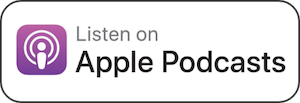



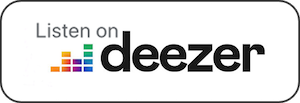


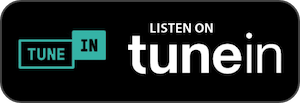
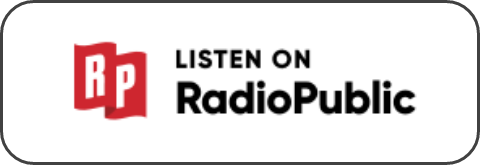
 For more than three decades, Don Scales has run professional services firms and understands firsthand how to make them succeed. In his current role of global CEO of Investis Digital, he is executing on his vision to lead a company unlike anything else in the digital communications space. He’s put together a team with deep expertise in corporate communications and investor relations and united them with innovative performance marketing experts and world-class technology solutions to help companies connect with audiences across all digital touchpoints.
For more than three decades, Don Scales has run professional services firms and understands firsthand how to make them succeed. In his current role of global CEO of Investis Digital, he is executing on his vision to lead a company unlike anything else in the digital communications space. He’s put together a team with deep expertise in corporate communications and investor relations and united them with innovative performance marketing experts and world-class technology solutions to help companies connect with audiences across all digital touchpoints.